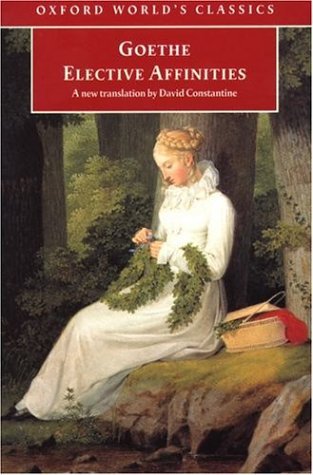
Faust, First Part
Book Description
A desperate scholar stands at the precipice of despair, yearning for knowledge beyond the mortal realm. He makes a fateful pact with the enigmatic Mephistopheles, unleashing a whirlwind of passion, ambition, and moral conflict. As Faust navigates a treacherous path filled with love, betrayal, and the quest for meaning, he grapples with the boundaries of human desire and the consequences of his choices. Each encounter builds a crescendo of tension, leading to a heart-wrenching climax that questions the very essence of redemption. Will Faust find salvation, or will his pursuit of enlightenment lead to his ultimate downfall?
Quick Book Summary
Goethe's "Faust, First Part" traces the journey of Dr. Heinrich Faust, a learned scholar tormented by existential despair and the limits of human knowledge. In his desperation, Faust enters a pact with the devilish Mephistopheles, exchanging his soul for worldly satisfaction and boundless experience. Their bargain leads Faust into a tumultuous romance with the innocent Gretchen, whose life is ultimately destroyed by his reckless actions. As Faust seeks fulfillment in love, pleasure, and knowledge, he confronts profound questions about ambition, morality, and redemption. The narrative traverses themes of temptation, the human yearning for meaning, and the perilous pursuit of transcendence, culminating in tragedy and reflection on the price of earthly desires.
Summary of Key Ideas
Table of Contents
The Limits of Human Knowledge and Ambition
The story opens with Faust, a scholar frustrated by the inadequacy of human knowledge; despite his learning, he feels empty and purposeless. In desperation, he contemplates suicide but is swayed by the sounds of life outside his study. Turning to magic and the occult, Faust seeks answers beyond the rational world and summons Mephistopheles, a cynical, witty demon who offers him a pact: limitless worldly pleasures and knowledge, in exchange for his soul if he ever declares complete satisfaction with life.
The Temptation and Bargain with Evil
Faust’s partnership with Mephistopheles propels him into a series of adventures, marked by hedonism and self-indulgence. Driven by desire for youth and sensation, Faust is revitalized and becomes enamored with Margaret (Gretchen), a beautiful, innocent girl. With Mephistopheles’ aid, he courts her, drawing her into a forbidden and eventually destructive relationship. Gretchen’s mother is killed by a drug meant to sedate her, her reputation is ruined, and her brother is slain defending her honor. The allure of love is tragically corrupted by Faust’s selfishness and Mephistopheles’ manipulation.
Love, Innocence, and Corruption
Gretchen’s downfall is the most harrowing consequence of Faust’s pact. Abandoned by Faust and scorned by society, she is driven to madness and infanticide, leading to her imprisonment and impending execution. Despite Mephistopheles’ urging, Gretchen rejects Faust’s pleas to escape, resigned to her fate and placing her hope in divine mercy. Her spiritual integrity in the face of suffering highlights the novel’s exploration of innocence, guilt, and the potential for redemption, contrasting Faust’s moral vacillation.
Moral Responsibility and Consequences
Throughout their journey, Faust and Mephistopheles encounter the tension between striving for sublime understanding and the temptations of earthly desire. Faust’s ambition repeatedly leads to moral compromise, raising profound questions about the cost of knowledge, the nature of evil, and personal responsibility. Mephistopheles, embodying skeptical reason and mockery, challenges Faust’s ideals and encourages his descent, serving both as antagonist and mirror to Faust’s inner struggles.
The Search for Redemption
The conclusion leaves Faust’s ultimate redemption unresolved but highlights Gretchen’s salvation through repentance and faith. Goethe’s "Faust" weaves philosophy, romance, and tragedy into a work that probes the limits of human striving, the dangers of hubris, and the possibility of grace amid suffering. The play’s enduring power lies in its exploration of the human condition—the search for meaning, the seduction of power, and the hope for forgiveness.
Download This Summary
Get a free PDF of this summary instantly — no email required.





